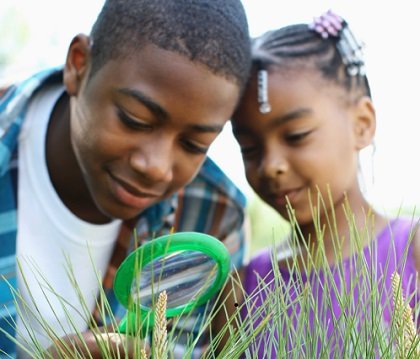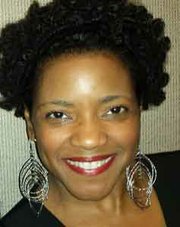BALTIMORE — When it comes to education there are many prolific leaders and profound quotes that speak to the significance of lifelong learning. Nelson “Madiba” Mandela was the president of South Africa and an anti-apartheid revolutionary. He had a global impact on how we embrace change and education at a fundamental level. He once said, “Education is the most powerful weapon one can use to change the world.” And still we have the power to change.
(Courtesy photo)
Ruth Young Tyler
Although the end of the school year is quickly approaching, there are resources available to maintain a student’s academic involvement and stimulate social learning throughout the summer. In order to keep them intellectually engaged in the educational process, here are four family-oriented activities to enhance lifelong learning.
Reading: Margaret McNamara was ahead of her time when she created “Reading is Fundamental,” a literacy program which originated in Washington, D.C. The organization’s name quickly transitioned into a call to action. Reading comprehension is a critical skill and it’s priceless. In its ongoing effort to increase a love for reading and combating the notorious “summer slide,” The Enoch Pratt Library (www.prattlibrary.org) has launched its annual Summer Reading Program at all of its branches (June 6 — August 8, 2015).
The Baltimore County Public Library (www.bcpl.info) is scheduled to launch its summer reading program, which begins June 15 and runs until August 9, 2015. The program is designed for children, teens and adults. Students can enhance their imagination and academic prowess through reading. Take advantage of the program and register online or go into your local branch.
Preparation: There is a phrase that states, “If you fail to plan, then you plan to fail.” In action and knowledge, everything we do requires an analytical thought process and intricate planning.
During the hazy and humid days to come, train your child/children on how to prepare meals for the week, camping trips, or when houseguests are scheduled to visit. Train their minds to consider the items they will need for each event and/or activity. Show them how to create a checklist. Explain to them what to expect in preparation for college, learning a trade and/or how to save money. Applying consistent and incremental steps toward a larger goal will secure a desired outcome. Expect the unexpected and prepare for it as well.
Volunteerism: Why should I volunteer? Volunteering at your place of worship, with a community organization or a little league team is an opportunity to learn how to become a “servant leader.”
Students can earn service-learning hours toward graduation and gain skills in high-demand careers including, science, technology, engineering and mathematics. Through volunteering, students can develop a solid network of business professionals who can serve as mentors.
Although students may start off learning how to serve others, they become the benefactors of their own consistent efforts. There are numerous academic grants and scholarships that are given annually just on the basis of volunteering (www.finaid.org).
Sex education: Empowering your child/children with age appropriate knowledge about sex is the parent’s responsibility. With a myriad of views and moral standards, health and sex education is part of the parent’s curriculum.
The reality is if parents fail to take the initiative in educating their children about puberty and sex, they will soon be mis-educated by their peers, social media and their imagination.
According to the Maryland Department of Health and Mental Hygiene there were 1,395 adult/adolescent HIV cases (age 13+) diagnosed in Maryland in 2013. Baltimore City and Prince George’s County had the highest rate of new HIV cases.
There is an urgent need and call to action to educate on many levels. To combat what we mentally digest from watching sitcoms and music videos, interactions on social media, and playing video games, education is a matter of life and death. Education and social learning can be transforming and beneficial for the entire family.

